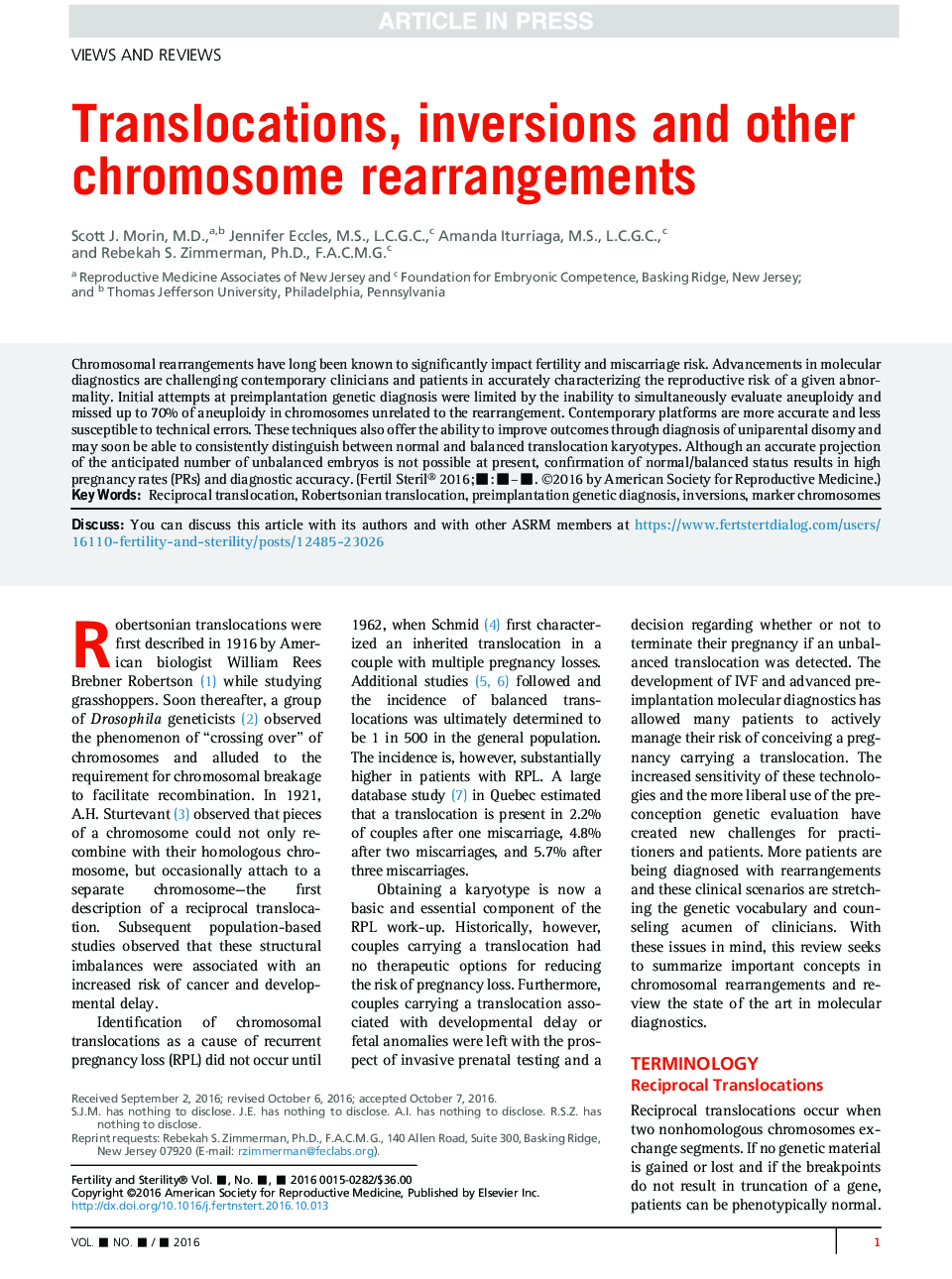| Article ID | Journal | Published Year | Pages | File Type |
|---|---|---|---|---|
| 5695002 | Fertility and Sterility | 2017 | 8 Pages |
Abstract
Chromosomal rearrangements have long been known to significantly impact fertility and miscarriage risk. Advancements in molecular diagnostics are challenging contemporary clinicians and patients in accurately characterizing the reproductive risk of a given abnormality. Initial attempts at preimplantation genetic diagnosis were limited by the inability to simultaneously evaluate aneuploidy and missed up to 70% of aneuploidy in chromosomes unrelated to the rearrangement. Contemporary platforms are more accurate and less susceptible to technical errors. These techniques also offer the ability to improve outcomes through diagnosis of uniparental disomy and may soon be able to consistently distinguish between normal and balanced translocation karyotypes. Although an accurate projection of the anticipated number of unbalanced embryos is not possible at present, confirmation of normal/balanced status results in high pregnancy rates (PRs) and diagnostic accuracy.
Keywords
Related Topics
Health Sciences
Medicine and Dentistry
Obstetrics, Gynecology and Women's Health
Authors
Scott J. M.D., Jennifer M.S., L.C.G.C., Amanda M.S., L.C.G.C., Rebekah S. Ph.D., F.A.C.M.G.,
